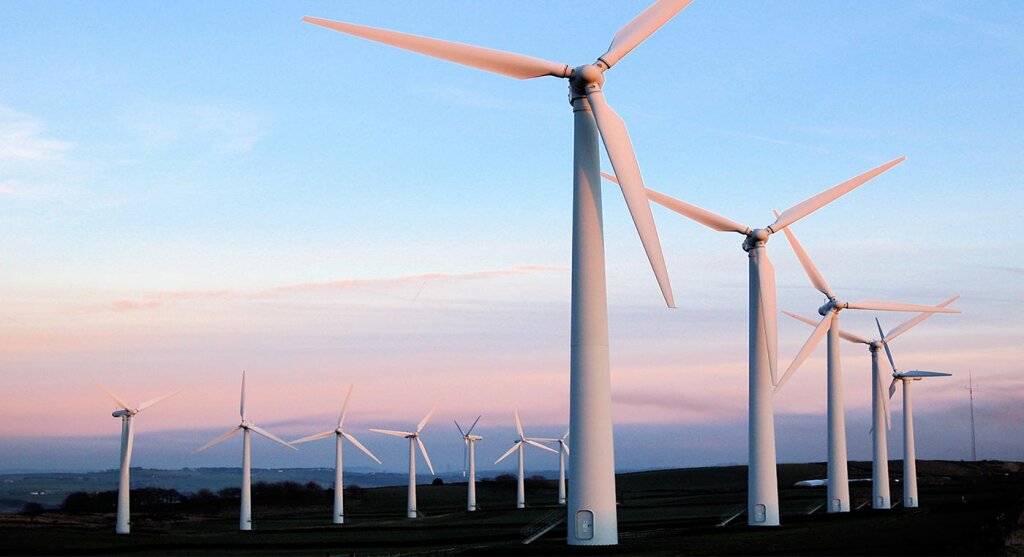John B. Norris is a native of Brooklyn, New York who has a passion for foreign affairs, coalition-building and investigating the geopolitics around climate change.
The recent OPEC+ agreement to cut back oil production may eventually help support global oil prices after demand recovers as COVID-19 fears recede, but this tentative coalition could again devolve into a bitter price war as occurred during March 2020.
Whatever happens in global hydrocarbon markets, however, Russia needs to rethink its energy policies. The country’s long-term interests are not well served by having both its national policies and economic activities governed by the fossil fuel industry. Instead, Russian policy-makers should map out a future during this time of economic inactivity that seeks to move investments toward renewable energy sources, such as wind, solar, hydroelecrtric and geothermal.
Through policy frameworks that focus on implementing these renewable energies, such as Decree 443, which would introduce domestic market mechanisms that promote the growth of renewable energy in the wholesale electricity and capacity markets, Russia can disentangle itself from OPEC-related disputes and work towards recovering from recent oil declines that have hurt domestic producers. Although Russia appeared relatively well-equipped to handle the immediate impacts of the price war, since the ruble appears sturdy and the country has about $550 billion in foreign reserves, the conflict has clearly reinforced the notion that Russia’s future prosperity can always be put at risk as long as the oil, gas and coal industries account for roughly 30% of the state’s economy and nearly 90% of its total energy generation, according to the United States Energy & Information Administration (EIA).
The time has come for Russia to reevaluate its vulnerabilities and consider switching energy investments toward renewable generators and their breakthrough technologies.
The Russian Federation is well-positioned to build upon existing federal support mechanisms and could quickly change national policy to reflect a more renewable friendly energy portfolio. Russia could gain significant diplomatic marks by attempting to establish itself as the international leader in combating climate change by reducing its greenhouse gas (GHG) emissions and improving its renewable capacity through technological cost reductions, since green policies have been shown to promote global peace.
By encouraging climate-friendly energy policies and promoting a more liberalized energy market, Russia has the ability to reduce both its carbon footprint and usher the country into a more prosperous and sustainable nation by creating a brighter, greener and healthier future. This utopian vision, however, will be difficult to achieve, since much of the country’s political and economic ruling class are intricately connected to the fossil fuel industry and thus are reluctant to loosen their grips on the levers that enable their power.
Russia has already harnessed an impressive assortment of its resources for green energy, such as the Sayano-Shushenskaya Dam and the geothermal plants in Kamchatka, and "green power" represents roughly 15% of the country’s total installed power capacity. Yet more can be done to increase this capacity by both expanding existing solar- and wind-farms and taking advantage of the slowly opening Northern Sea Route, whose hydroelectric and trade potential seems boundless.
That being said, improving these untapped resources will not be easy, because many are difficult to access due to geographic constraints. According to the International Renewable Energy Agency (IRENA), however, with comprehensive and sophisticated policy adjustments Russia could install 150 gigawatts (GW) of new energy, generating up to 487 terawatts an hour (TW/hr) for the domestic energy grid.
IRENA concedes that this will require immense capital financing, but the economic, technological and geopolitical benefits, such as a healthier environment, less vulnerable financial system and new scientific discoveries, seem to far outweigh the bottom lines of the companies that currently prosper at the cost of Russia’s progress. The use of renewable energy will reduce Russia’s reliance on oil and gas, thereby improving the state’s future outlook through a reformation of the wholesale energy market and by making it less oligarchical.
History has shown that Russia’s hydrocarbon interests have frequently brought unnecessary pain. Whether in the form of Western sanctions against Russia companies, or needless Middle Eastern entanglements, either in Afghanistan, Syria or Saudi Arabia, oil dominance clearly comes at the cost of treasure and life. The Russian nation has allowed its exposed weaknesses to disrupt its geopolitical potential for too long and with the threat of climate change looming, it is time for the Russian government to take decisive action.
Climate change can be beneficial, such as the previously mentioned opening of the Northern Sea Route, but this optimism must be tempered with the pragmatic view that global warming is a double-edged sword. Science has conclusively shown that the world has been steadily warming due to the continued anthropogenic burning of fossil fuels. Russia has emitted a significant amount of GHG already, and as a consequence, natural disasters will occur more frequently and become more fierce in the region, exacerbating many of the already existing vulnerabilities that place Russia at geopolitical risk.
Focusing on limiting the consequences of climate change can be accomplished by replacing hydrocarbon energy with renewables, but also through the development of regional marketplaces that act to both promote diplomacy and technological advancement. Geopolitically, a Central Asian “green revolution” could also give Russia another tool of statecraft to influence international politics to an even greater extent. Even better, the creation of a regional multinational regime of Central Asian nations could assist in times of energy crisis and accelerate the research into renewables benefiting millions.
Renewable energy would allow Russia to achieve ever greater productivity for both domestic use and export markets. With this in mind, the current administration should seek to implement policies aimed at increasing the relative share of energy that is produced from renewable sources.
Russia continues to suffer from a technological brain drain where young and talented Russians are increasingly deciding to learn, live and work abroad due to the uncertain prospects they have in Russia. President Vladimir Putin should use his recently obtained constitutional authority to implement a new energy policy that reduces hydrocarbon influence, through climate-related mechanisms. By strengthening the nation’s security through the promotion of renewables, the President can effectively reduce the ever-widening societal gaps that persist in Russia and prevent the country from achieving sustainable development.
To be sure, overcoming these problems, such as energy monopolization and economic inequality, will not be straightforward and would require immense structural and strategic changes.
Russia must use the time bought by the recent landmark oil agreement to both solidify its own short-term interests and plan for a future where the hydrocarbon sector’s outsized influence in domestic affairs is reduced. Without comprehensive energy reforms that are focused both on Russian energy security and limiting the impact of climate change through the expansion of the renewable industry, Russia will continue to experience severe financial and environmental pain. Russians must reevaluate their continued use of fossil fuels and acknowledge that the best way to ensure their country’s survival and growth in the coming decades is through wholesale energy resolutions that reduce monopolization and encourage the development of their renewable energy capabilities.



